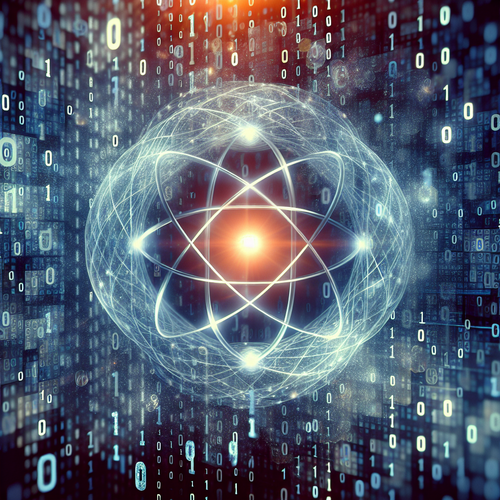
Decoding Quantum Computing: A Simplified Insight
Decoding Quantum Computing: A Simplified Insight
As we traverse the fast-paced highway of technological advancements, the concept of Quantum Computing has made a surprising leap from theoretical physics labs into the mainstream tech conversation. Let’s break down this complex technology into comprehensible bites.
What is Quantum Computing?
By definition, Quantum Computing leverages quantum mechanics to perform computational tasks at a speed unimaginable to traditional supercomputers. Its core elements, Quantum Bits (qubits), have the unique ability to exist in multiple states at once, offering an exponential growth in computational power.
How Does It Differ from Classical Computing?
- Unlike classical bits that can either be 0s or 1s, qubits can exist in both states simultaneously due to a property known as superposition. This allows for a higher amount of data processing.
- Another quantum property, entanglement, allows qubits that are entangled to instantaneously impact each other, irrespective of the space between them. This extends the quantum computer’s processing capabilities further.
Quantum Supremacy: A Reality or Hypothetical?
Quantum Supremacy refers to the point where quantum computers outperform traditional computers in unrealistic timescales. In 2019, Google’s Sycamore processor reportedly achieved this feat, sparking a mixture of skepticism and hope in the tech world.
The Future of Quantum Computing
Quantum Computing bears a plethora of promises, from revolutionizing cybersecurity to transforming digital communication. However, the path to practical implementation is ridden with challenges, the largest one being the creation and maintenance of stable qubits.
Moreover, it raises ethical and security considerations as it could potentially crack encryption codes, posing a threat to digital security as we know it.
Conclusion
Quantum Computing is an exciting field that intertwines complex physics and computer science. While the technology may sound daunting, its potential impact on our world is undeniably huge. It gives us a glimpse into an unprecedented era of computation, demonstrating once again that the limits of technology are far from being fully explored.













